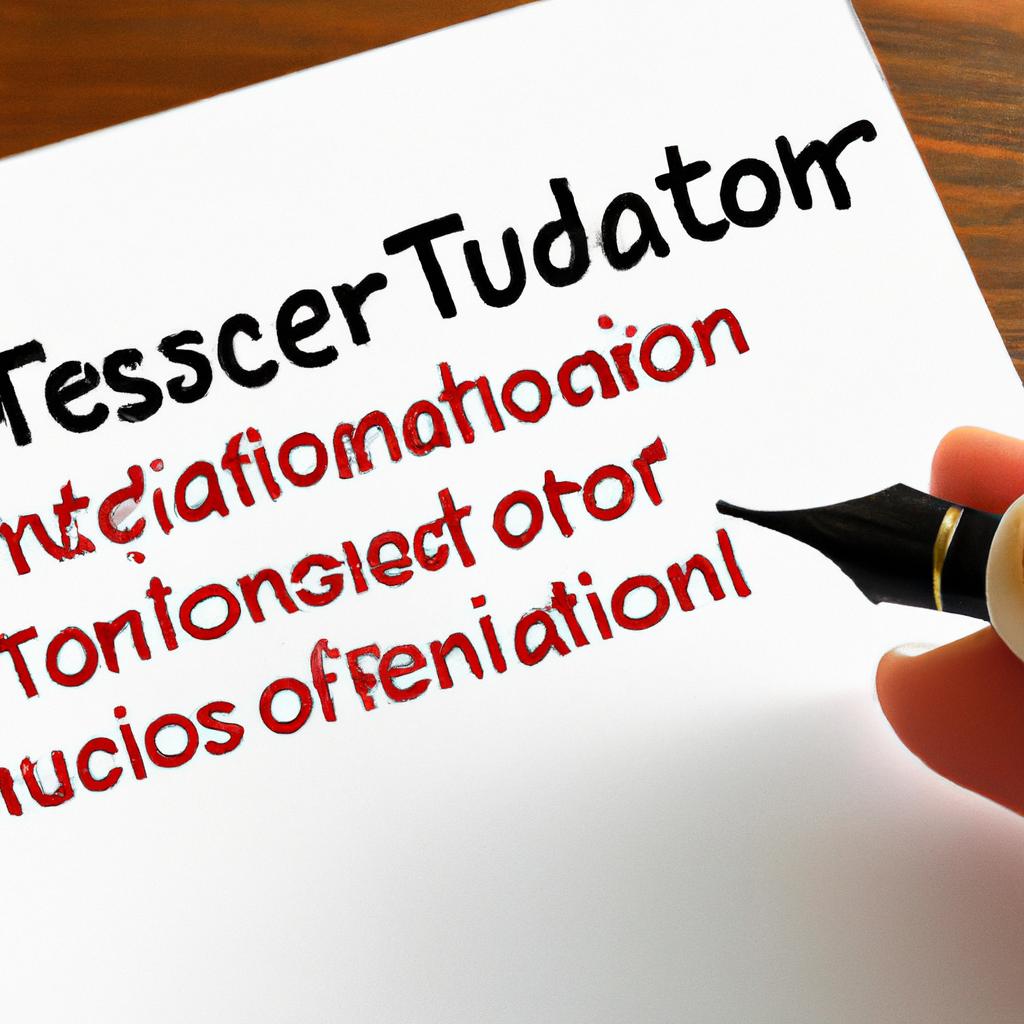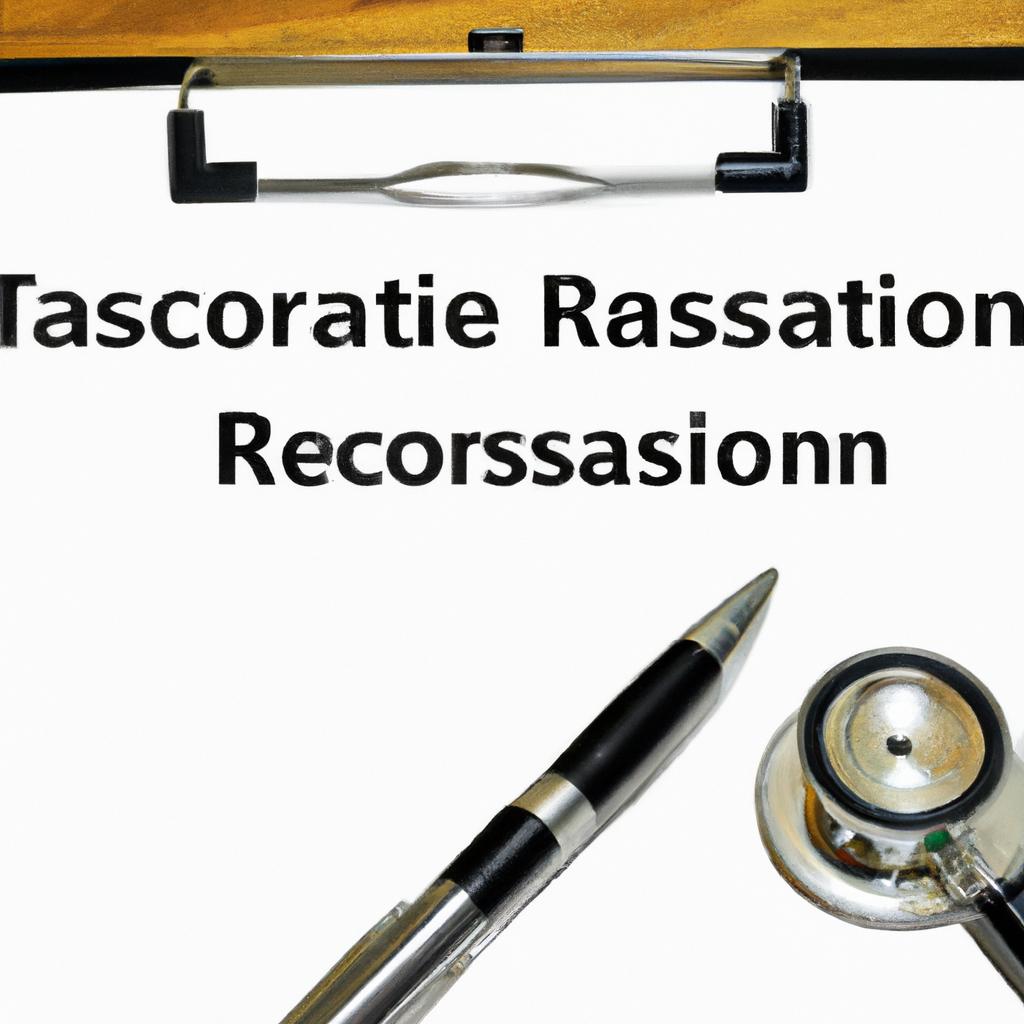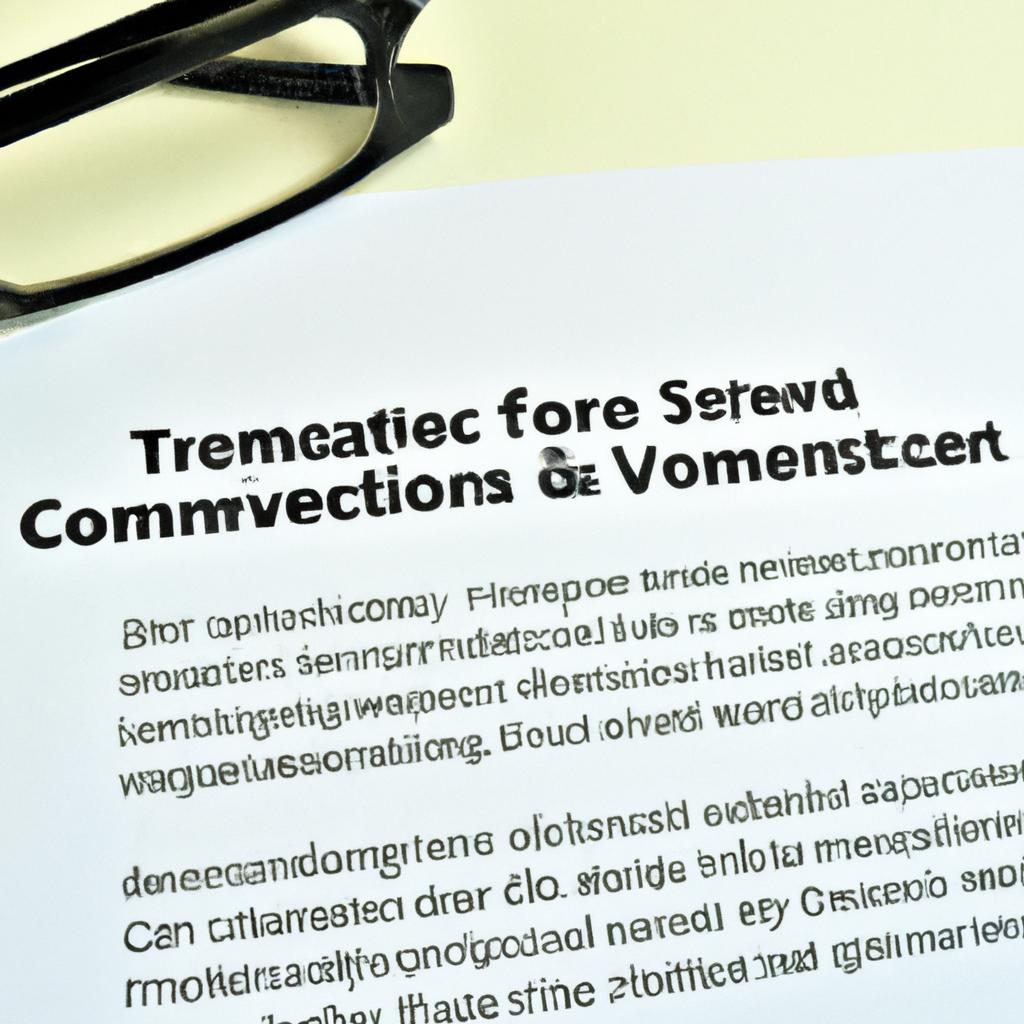As a knowledgeable practitioner in the realms of estate planning, probate, and trusts, one question that frequently arises is the matter of trustee fees. Establishing the compensation for a trustee is a crucial aspect of trust administration, one that requires careful consideration in order to ensure the proper management of assets. In this article, we will delve into the intricacies of trustee fees, exploring the various factors that influence the determination of compensation for these appointed fiduciaries. Join us as we navigate the complexities of this vital component of trust administration, offering insights and guidance on navigating the delicate balance between fair compensation and prudent stewardship of assets.
Understanding the Factors Influencing Trustee Fees
One of the key elements in estate planning is determining trustee fees. These fees can vary depending on several factors that must be carefully considered. is essential for individuals looking to establish a trust and ensure that their assets are managed effectively and efficiently.
Factors that can influence trustee fees include the complexity of the trust, the size of the trust assets, the level of expertise required from the trustee, the geographic location of the trustee, and the specific services provided by the trustee. Trustee fees are generally determined based on a percentage of the trust assets, with typical rates ranging from 1-2% annually. However, some trustees may also charge hourly rates or flat fees for specific services. It is important to work with a knowledgeable estate planning attorney to help navigate the complexities of trustee fees and ensure that the chosen trustee is compensated fairly for their services.
| Factors | Impact on Trustee Fees |
|---|---|
| Complexity of Trust | Higher complexity may result in higher fees |
| Trust Assets Size | Greater assets may lead to higher fees |
| Trustee Expertise | More expertise may warrant higher fees |
| Geographic Location | Location may impact fee rates |
| Services Provided | Different services may have varying fee structures |

Evaluating the Reasonable Compensation for Trustees
When , it is important to consider the various factors that may impact the fee. Trustees play a crucial role in managing and administering trusts, ensuring that assets are protected and distributed according to the trust document. As such, trustees are entitled to compensation for their time and efforts. However, determining the appropriate fee can be a complex process that requires careful consideration of the trustee’s responsibilities, the size of the trust, and the time commitment involved.
**Factors to consider when evaluating trustee compensation:**
- Trust size and complexity
- Trustee’s level of experience and expertise
- Time commitment required
- Local market rates for trustee services
| Trustee Responsibilities | Appropriate Compensation |
|---|---|
| Investment Management | $1,000 – $10,000+ |
| Record-Keeping & Reporting | $500 – $5,000+ |
| Legal & Tax Compliance | $1,000 - $10,000+ |

Reviewing Common Fee Structures for Trustees
| Trustee Fee Structure | Explanation |
|---|---|
| Flat Fee | A set amount paid regardless of the size of the trust or the work involved. |
| Hourly Rate | Payment based on the number of hours worked on trust matters. |
| Percentage of Assets | A fee calculated as a percentage of the trust assets under management. |
When , it is essential to consider the unique circumstances of each trust. A trustee’s fee should reflect the complexity of the trust, the level of responsibility involved, and the trustee’s expertise. Flat fees are straightforward but may not always align with the amount of work required. Hourly rates can provide transparency but may lead to higher costs for more complex trusts. Percentage-based fees may incentivize trustees to grow trust assets but can also result in higher fees for larger trusts.
Ultimately, the trustee fee should be reasonable and fair, taking into account the best interests of the beneficiaries and ensuring that the trustee is adequately compensated for their services. It is crucial to discuss fee structures openly with your trustee and seek professional advice to ensure that the fees are appropriate and in line with industry standards.

Best Practices for Negotiating Trustee Fees
When negotiating trustee fees, it is essential to consider the complexity and size of the trust, the services provided, and the level of expertise required. Trustee fees can vary depending on the state, the individual trustee’s experience and qualifications, and the specific terms outlined in the trust agreement. To ensure fair compensation for your services as a trustee, it is crucial to follow best practices to negotiate trustee fees effectively.
Some include:
- Researching industry standards and guidelines for trustee fees in your state
- Discussing compensation expectations and responsibilities upfront with the trust creator and beneficiaries
- Documenting all services provided and time spent as a trustee
- Seeking guidance from legal and financial professionals to ensure compliance with trust laws and regulations
Q&A
Q: What is a trustee fee and why is it important?
A: A trustee fee is a payment made to a trustee for managing assets or administering a trust. Trustee fees are important for compensating trustees for their time and expertise in handling complex financial matters.
Q: How much is a typical trustee fee?
A: The amount of a trustee fee can vary depending on the size of the trust, the complexity of the assets, and the level of responsibility involved. Generally, trustee fees range from 0.5% to 1.5% of the trust’s assets per year.
Q: Are trustee fees tax-deductible?
A: In most cases, trustee fees are deductible on your taxes as a miscellaneous itemized deduction subject to the 2% limit. However, it’s important to consult with a tax professional to determine your specific tax situation.
Q: How can I negotiate trustee fees?
A: If you feel that the trustee fee is too high, it is possible to negotiate with the trustee to lower the fee. However, it’s important to consider the level of service provided and the market rate for trustee fees before attempting to negotiate.
Q: Are there alternatives to paying trustee fees?
A: Some trusts may allow for the appointment of a family member or friend as trustee to avoid paying professional trustee fees. However, it’s important to consider the potential conflict of interest and lack of expertise that may come with having a non-professional trustee.
Future Outlook
In conclusion, understanding trustee fees is essential for anyone who is considering establishing a trust or serving as a trustee. By being informed about the costs involved, you can make informed decisions and ensure that your trust is being managed effectively and efficiently. Remember to always consult with a legal professional to get a clear understanding of the trustee fees associated with your specific trust arrangement. Thank you for reading and we hope this article has provided you with valuable insights into the world of trustee fees.






